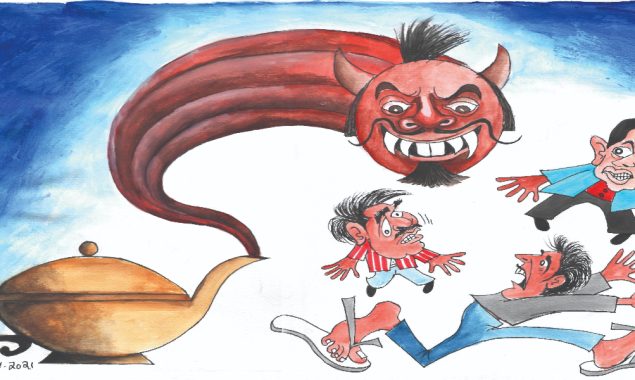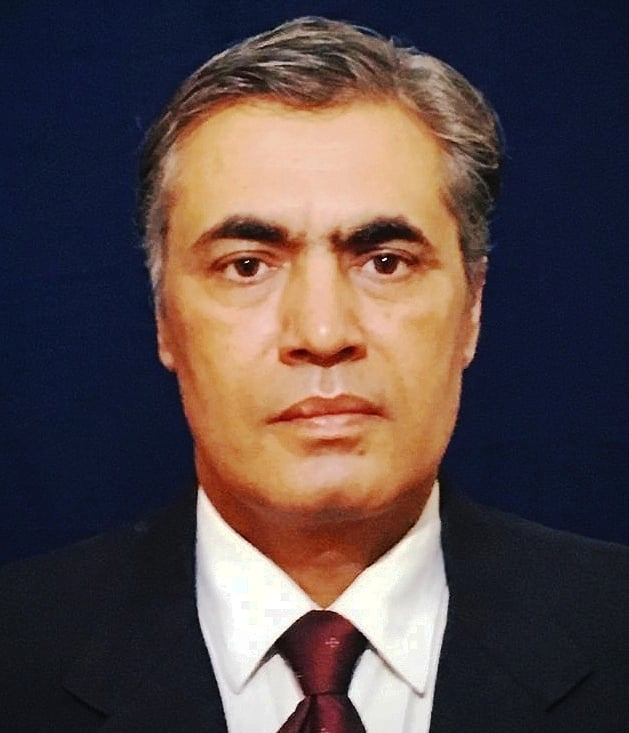Synopsis
Inflation for the lower income group rises up to 19.40%

KARACHI: The global wave of inflation has hit Pakistan hard. The low-income segment of the society has particularly been affected by the sharp rise in the prices of basic kitchen items.
The average inflation based on the Sensitive Price Indicator (SPI) increased 18.09 per cent on a year-on-year basis by the week ended February 18, 2020, but, for the lowest income group, it turns out to be 19.40 per cent.
The Pakistan Bureau of Statistics (PBS) issues SPI on a weekly basis to monitor the prices of 52 essential items with five expenditure groups. The highest inflation is for the expenditure group falling under Rs17,732/month.
The opposition parties have already started their campaign to remove the government by holding it responsible for high inflation and increase poverty.
PML-N leader and former finance minister Miftah Ismail said that inflation has played havoc with the lives of the common man.
“The PTI-led government has made the lives of the poor people more difficult,” he said.
Ismail blamed the government for the rise in inflation. “The government instead of curbing the rising inflation, is focusing its efforts elsewhere,” Ismail said, adding that Pakistan is facing inflation due to two major reasons; high commodity prices globally and the massive rupee depreciation against the dollar.
Both these factors can be gauged through the import bill of the country during the first seven months of the current fiscal year. The imports surged 59.33 per cent to $46.61 billion during July-January 2021/22, compared with $29.25 billion in the corresponding period of the last fiscal year.
In rupee terms, the import bill sharply increased 67 per cent to Rs7.94 trillion during the first seven months of the current fiscal year, compared with Rs4.76 trillion in the corresponding period of the last fiscal year.
The increase in local petroleum prices has an adverse impact on the household budgets. The government has already increased the prices of petroleum products significantly during the last one year. The POL prices were increased due to a surge in the international markets, yet the massive depreciation in the local currency has its effects. The prices of petrol and high-speed diesel witnessed a rise of 42.30 per cent and 32.26 per cent, respectively, during the last one year, besides reaching record high.
The recent Russia-Ukraine war may also push up the prices of the international crude oil.
A report of Topline Securities hinted at continuation of inflationary pressure.
“With the oil prices hovering over $100/barrel, inflationary pressures are likely to persist in the near- to medium-term. We expect the inflation will remain at the higher end of the State Bank of Pakistan’s (SBP) inflation forecast range of 9 to 11 per cent in the fiscal year 2021/22.”
The high oil prices and the rupee depreciation has also pushed up the prices of essential items during the last one year, including wheat flour, 22.51 per cent; cooking oil, 42 per cent; electricity, 66 per cent; rice, 12.3 per cent; milk, 10 per cent; tea, 10 per cent; liquefied petroleum gas, 55 per cent; and washing soap, 38.40 per cent.
The business community has also expressed concerns over the ever-increasing prices and suggested the government for timely action to check inflation.
Korangi Association of Trade and Industry (KATI) President Salman Aslam urged the government to take concerted measures to improve the living standard of the common man.
“The government needs to take positive steps to curb inflation so that the living standard of the poor and middle-class segments of the society can be improved.”
The businessmen have also expressed concern over the rise in the prices of petroleum products, gas and electricity on a regular basis, which resulted in an increase in the cost of production to a dangerous level.
For Aslam due to an exorbitant increase in the production cost, the local industrialists have no other option but to shift their capital abroad.
Site Association of Industry (SAI) President Abdul Rashid said the increase in the petroleum products prices is disastrous for the economy.
“An increase in the utilities prices again and again and the closure of gas are already impeding industrial activities to a great extent and the recent increase in POL products prices is bound to stop the wheels of industry, which will ultimately result in a decline in exports and mass unemployment,” he said and urged Prime Minister Imran Khan to take measures for curbing inflation and save the trade and businesses from disaster.
“If the government does not formulates trade and industry friendly-policies, the exports of the country and the economy will suffer colossal losses and the progress will also suffer a setback,” Rashid added.
The rising inflation has also given rise to street crimes, especially in Karachi. The financial and commercial hub of the country has witnessed an alarming rise in street crimes during the past couple of months.
During the last one-and-a-half months, 13 people have lost their lives, while 11,000 incidents have been reported. Sindh Chief Minister Syed Murad Ali Shah has attributed the rise in the street crimes to high inflation and deteriorating economic conditions.
Salman Aslam also blamed high inflation responsible for the deteriorating the law and order situation and increased pressure on the economy. He asked the government to take immediate action to ensure economic stability.
Read More News On
Catch all the Business News, Breaking News Event and Latest News Updates on The BOL News
Download The BOL News App to get the Daily News Update & Follow us on Google News.




